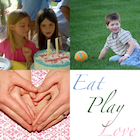 Hope you all had a good week. The school is abuzz with menorah making, storytelling and so much more. I know that the pace of this city, this JCC, and my own personal life makes me eagerly await the arrival of this shabbat.
Hope you all had a good week. The school is abuzz with menorah making, storytelling and so much more. I know that the pace of this city, this JCC, and my own personal life makes me eagerly await the arrival of this shabbat.
“Okay kids,” I said to my children last night over dinner, “I need to write my Friday newsletter and I am not sure what to say.” They all agreed I should write about Chanukah, but what, I asked. Daniel, my 8 year-old son, explained in his always direct, perceptive way: “Most kids think about Chanukah differently than grown ups. They think we get presents, you hear the story and that’s it. Grown ups, most of them, pay attention to the prayers more than the kids do and focus on how lucky they are.” He nailed it. We adults work so hard to turn Chanukah into a holiday of meaning, beauty, lessons and values, and the kids, well for them, it may be more about the presents!
As many of you hopefully read in my newsletter last week, my family has integrated tons of rituals and traditions into our holiday celebration to infuse meaning into this holiday – community service projects, targeted charitable giving, annual celebrations with family and friends, pilgrimages to City Center to see Alvin Ailey, smaller gifts most nights, and yet … as Daniel said, for kids it is still mostly about the presents!
This conversation got me thinking less about our differing perspectives on Chanukah and more on the disconnect that too often exists between children and grown ups. We adults are so eager to move children to a more “grown up” perspective that we don’t always soak in their experience. When a child says the sun “goes to sleep” we feel the need to explain the rotation of the earth and moon. When a child says “boys are stronger” we immediately need to correct this notion with a more feminist perspective. When a child says they don’t like to share we immediately need to tell them how fun and great it is to share. And when my son told me that most kids think Chanukah is about the presents, my first instinct was to launch into a discussion of the deeper values and significance. But why?
Why do we feel this urge to so quickly correct these view points and why do they make us uncomfortable? We imagine that our children’s views will be fixed as they are and project that they will hold these ideas later in life. But why? Don’t we know that children’s ideas are always evolving and growing, changing and developing? And what do we lose by shutting down these conversations? What would happen if instead we embraced these thoughts and perspectives, if we asked, what do you like about getting presents? When else do you feel delight? How do you feel about being surprised? How does it feel to give other people gifts? How do you feel when the present isn’t what you expected or hoped for? There is so much that we could do besides for becoming preachy and telling them how we want them to feel or think.
As parents we have the enormous responsibility of raising children with values, with kindness, with a sense of themselves in the context of a larger community. But we also have the responsibility of giving our children space to create theories, to share perspectives, and to hear our perspective in a way that honors the validity of theirs. We also have so much to learn from our children. We need their theories, the ways that they connect ideas, and their radical young minds.
After talking with my children for a few minutes, and beginning to list all of their favorite memories of past years Chanukahs I wondered aloud, “is it a problem that kids have such a different idea about Chanukah than their parents?” My 12-year old daughter quickly replied: “No, it’s not a problem because you guys were once kids also and you grew up and now you are parents. And all the parents are doing the same thing and trying to get their kids involved and the cycle continues.”
So perhaps this is the cycle. Our children experience excitement and awe around the energy of the upcoming holiday, they delight in a range of experiences, perhaps most saliently the receiving of gifts, and over time, as they develop layered experiences, they get increasingly attached to some of these other values. And some day, they too may be giving charity, doing community service projects with their children, and wrestling to carve out sacred time to celebrate this festival of light.
I wish you all a holiday of light, of family, and of times to celebrate the miracle and wonder of our children with ALL of their ideas – the modern, the outdated, the unpopular, the poetic and the brilliant!
- Gratitude - October 31, 2014
- The Tower Of Babel - October 24, 2014
- The World Was Created For My Sake… I Am But Dust And Ashes - October 3, 2014
